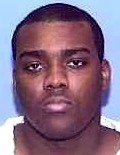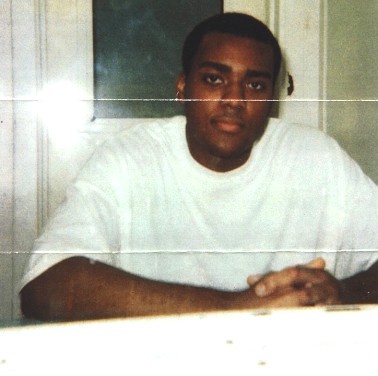B. Article 38.22
Article 38.22 sets out the requirements for the
admission of an accused's statements. Under this subsection 2 of
Article 38.22, written statements are not admissible unless it
is shown on the face of the statement that the appellant
received the appropriate warnings (1) that the accused has the
right to remain silent, (2) that anything he says may be used
against him at his trial or in court, (3) that he has the right
to an attorney to be present or to advise him during questioning,
(4) that an attorney will be provided before questioning if he
cannot afford one, (5) and that he has the right to terminate
the interview at any time. Tex. Code Crim. Proc. art. 38.22, §
2. The face of the statement must also show that the accused
waived all these rights.
The appellant argues that the statements admitted
during his trial did not comply with Article 38.22 subsections
2(a)(3) and 2(a)(4). These subsections require that the face of
the statement contain notice to the accused that he has the
right to have an attorney present and that if he is unable to
afford an attorney, one will be provided for him before
questioning. The record reveals that both statements contain the
necessary statutory warnings, and thus, the statements complied
with Article 38.22.
C. The Fifth and Fourteenth Amendments
The Fifth and Fourteenth Amendments' prohibitions
against compelled self-incrimination require that custodial
interrogation be preceded by notice to the arrestee that he has
the right to remain silent and to have an attorney present
during questioning. Edwards v. Arizona, 451 U.S. 477,
481-82 (1981). Once a suspect invokes his right to counsel, all
interrogation must stop until an attorney is provided, or until
the suspect reinitiates conversation. Edwards, 451 U.S.
at 484-85; Miranda v. Arizona, 384 U.S. 436, 474
(1966).
However, a suspect must unambiguously and
unequivocally invoke his right to counsel before the police must
stop the interrogation. Davis v. United States, 512 U.S.
452, 458-61 (1994). If the suspect might be invoking
the right to counsel, the officer does not need to cease
questioning the suspect. Id. at 459.
In Dinkins v. State, 894 S.W.2d 330, 352
(Tex. Crim. App. 1995), we explained that while there are no "magical
words" required to invoke an accused's right to counsel,
Davis requires at a minimum "that the suspect express a
definite desire to speak to someone and that [that] person be an
attorney."
When reviewing the alleged invocations of the
right to counsel, the reviewing court must look to the totality
of the circumstances surrounding the interrogation, as well as
the alleged invocation to determine whether a statement can be
construed as an actual invocation of one's right to counsel.
Dinkins, 894 S.W.2d at 351.
While a suspect "need not speak with the
discrimination of an Oxford don," he must articulate his desire
to have counsel present to the degree that "a reasonable police
officer in the circumstances would understand the statement to
be a request for an attorney." Davis, 512 U.S. at 459
(internal quotation marks omitted). Mere mention of the
word "lawyer" or "attorney," without more is not enough to
invoke one's right to counsel. Dinkins, 894 S.W.2d at
351 (citations omitted).
The suspect in Dinkins made two
ambiguous statements to the police: (1) "Maybe I should talk
with someone," and (2) "What [would] a lawyer would tell [me] to
do?" Id. at 350. In that case, this Court held that
neither statement constituted an invocation of the suspect's
right to counsel. Id. at 352.
The first statement was "more ambiguous than the
statement in Davis" because he did not even specify the
identity of the person to whom he wanted to speak. Ibid.
The second statement also did not rise to an invocation of the
right to counsel. Ibid. (citing Russell v. State,
727 S.W.2d 573, 576 (Tex. Crim. App. 1987) (the suspect's
question to the police officers "whether they thought the
presence of an attorney was necessary" did not constitute an
invocation of his right to counsel)).
Similar to the statements made in Davis
and Dinkins, the statements made by the appellant in
this case do not constitute unambiguous, unequivocal requests
for an attorney. His first statement, "You mean I can call a
lawyer if I want?" is merely a question that attempts to clarify
his understanding of the rights that had just been read to him.
His second statement, "What you said about a lawyer earlier,
what would a lawyer tell me to do?" is practically identical to
the statement in Dinkins, "What [would] a lawyer tell
[me] to do?" that we held did not rise to an invocation of the
right to counsel. Dinkins, 894 S.W.2d at 350, 352.
Furthermore, the officers responded to both of
the appellant's ambiguous statements with clarifying questions
to determine whether he actually wanted an attorney. They asked
if he understood his rights, and if he wanted to continue
talking with them. The appellant responded in the affirmative
both times. He did not invoke his right to counsel; therefore,
the trial court properly admitted both of the appellant's
statements into evidence. Points of error one and three are
overruled.
II. Failure to Request Limiting Instructions
In the appellant's second point of error, he
contends that he received ineffective assistance of counsel
because his attorney, for no apparent strategic reason, failed
to request either a limited admissibility instruction or a
reasonable doubt instruction with respect to uncharged
misconduct offered into evidence by the State against the
appellant. To prevail on a claim of ineffective assistance of
counsel, the appellant must satisfy the two-prong test set forth
in Strickland v. Washington, 466 U.S. 668 (1984).
Specifically, he must show that counsel's
performance was deficient, and that he was prejudiced by
counsel's deficient performance. To demonstrate prejudice, the
appellant "must show that there is a reasonable probability that,
but for counsel's unprofessional errors, the result of the
proceeding would have been different." Id. at 694.
There is "a strong presumption that counsel's conduct falls
within the wide range of reasonable professional assistance[.]"
Id. at 689.
The appellant relies upon this Court's decision
in Ex parte Varelas, 45 S.W.3d 627 (Tex. Crim. App.
2001), in support of his argument. In that case, we held that,
once extraneous acts have been ruled admissible, and if the
defendant so requests, the jurors should be instructed as to the
limits on their use of evidence of extraneous acts. Id.
at 631.
The "beyond a reasonable doubt" instruction tells
the jury that it should not consider evidence of uncharged
misconduct unless it believes beyond a reasonable doubt that the
defendant committed the act. Ibid. The "limiting"
instruction applies when the State is allowed to introduce
evidence of uncharged misconduct for a limited purpose, and the
trial court instructs the jury that they must limit their
consideration of the evidence. Ibid. If the defendant's
trial counsel requests either of these instructions at trial, he
is entitled to it, and the trial court errs in denying the
request. Ibid.
In Varelas, the trial counsel failed to
ask for "beyond a reasonable doubt" and "limiting" instructions,
and we held that such conduct fell below an objective standard
of reasonableness because reasonable counsel would have
requested the instructions, given the facts in that case. Id.
at 632.
We found that the applicant demonstrated
prejudice because the charged offense was similar in nature to
the uncharged misconduct, and that this evidence was likely
considered as direct evidence of the applicant's guilt. Id.
at 634-35. The harm was sufficient to undermine our confidence
in the outcome, and there was a reasonable probability that, but
for the errors committed by the applicant's attorneys, the
result of the trial would have been different. Id. at
363.
However, Varelas is factually
distinguishable from the appellant's case because, even assuming
that trial counsel's failure to request the instructions was
deficient, the appellant failed to demonstrate that any
prejudice resulted. Varelas did not establish automatic
ineffective assistance of counsel for failure to request such
instructions. Without more, we cannot conclude that the
appellant was prejudiced by his attorney's failure to request
the instructions. Point of error two is overruled.
III. Eighth Amendment Claim
In his fourth point of error, the appellant
claims the Texas death penalty scheme violates the Eighth
Amendment ban against cruel and unusual punishment. Identical
arguments have been addressed and rejected by this court before,
and the appellant gives us no reason to revisit those decisions
here. Sells v. State, No. 73,993, Slip. Op. At 32-33,
2003 WL 1055328, *14-15 (Tex. Crim. App. March 12, 2003);
Ladd v. State, 3 S.W.3d 547 (Tex. Crim. App. 1999). Point
of error four is overruled.
IV. Lesser-Included Offense Instruction
In his fifth point of error, the appellant
contends that the trial court erred by failing to instruct the
jury on the lesser-included offense of felony murder. To
establish that the appellant was entitled to a jury charge on a
lesser-included offense, he must satisfy the Royster
test as refined in Rousseau v. State, 855 S.W.2d 666,
672-73 (Tex. Crim. App. 1993).
An instruction on a lesser-included offense is
warranted when (1) the lesser included offense is included
within the proof necessary to establish the offense charged and
(2) some evidence exists in the record that would permit a
rational jury to find that if the appellant is guilty, he is
guilty only of the lesser offense. Ibid. Felony murder
is a lesser-included offense of capital murder. Id. at
673 (citing Creel v. State, 754 S.W.2d 205, 211 (Tex.
Crim. App. 1988)). "The distinguishing element between felony
murder and murder is the intent to kill." Fuentes v. State,
991 S.W.2d 267, 272 (Tex. Crim. App. 1999).
Capital murder includes an intentional
murder committed during the course of committing one of the
enumerated offenses in the statute. Ibid. A felony
murder includes an unintentional murder committed
during the course of a felony. Ibid. In felony murder
the culpable mental state is supplied by the underlying felony.
In this case, the appellant was entitled to an
instruction on the lesser-included offense of felony murder if
there was some evidence that the appellant had the intent to
commit the robbery, but not to cause the death of the victim.
Ibid. The appellant cites the following portion of his
first custodial statement in support of his argument that a
felony murder instruction was improperly omitted from the charge:
I was told [sic] all the black folks to just mind
their own business and then I robbed the place. I took some
money from a white dude and some from the cash register. It was
about a hundred something dollars. There was some white guy
sitting down at the bar and I knew he was going to do something.
He was acting like he was drunk. I started backing away to leave
when the white guy grabbed me and started wrestling with me kind
of like y'all did when y'all arrested me only y'all got the job
done. He started wrestling me and I just let loose with the gun
about two or three times. I was kind of scared, that's why I
shot the man. My - my mind was gone at the time so that's why I
shot him. To get him off me so I could leave.
Nothing in this statement demonstrates or even
implies that the appellant intended only to rob the decedent.
Although his statement may explain why he shot Church, it does
not show that he did not knowingly or intentionally do so. The
appellant plainly stated that he "let loose with the gun about
two or three times" because he was scared and wanted to get
Church off of him so he could leave.
In addition, the jury was instructed on the
lesser-included offense of murder under Texas Penal Code Section
19.02(b)(1), intentionally or knowingly causing the death of an
individual, which it rejected.
The appellant also seems to argue that his first
written statement only confessed to the issue and act of felony
murder because it states that he murdered Church after
the commission of the aggravated robberies. This argument is
also without merit. This Court has defined the phrase "in the
course of committing" as used in Section 19.03(a)(2) to mean "conduct
occurring in an attempt to commit, during the commission of or
in the immediate flight after the attempt or commission of the
offense." McGee v. State, 774 S.W.2d 229, 234 (Tex.
Crim. App. 1989); Riles v. State, 595 S.W.2d 858, 862 (Tex.
Crim. App. 1980).
Whether the appellant murdered Church during the
course of robbing him, or in the immediate flight therefrom, his
conduct did not warrant a charge on the lesser-included offense
of felony murder. Point of error five is overruled.
We affirm the judgment of the trial court.
Delivered: October 22, 2003.



